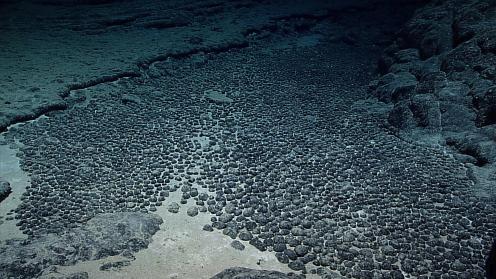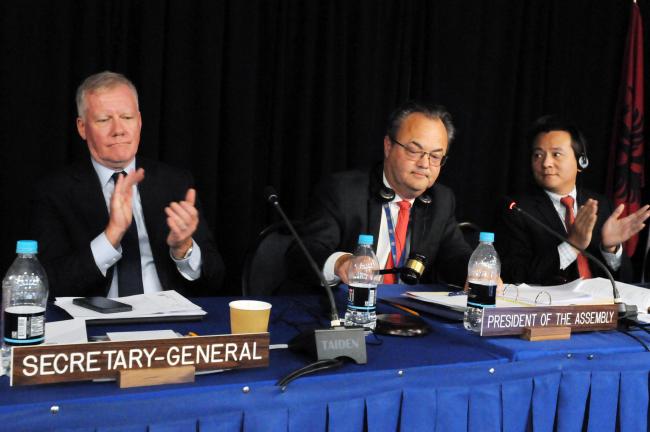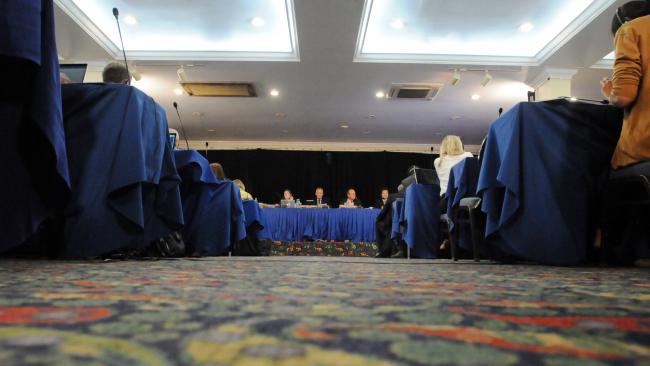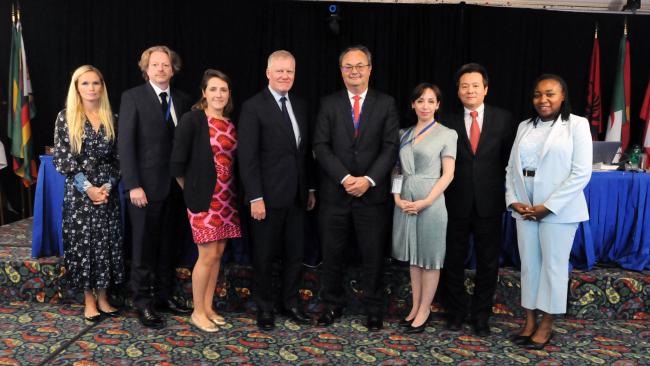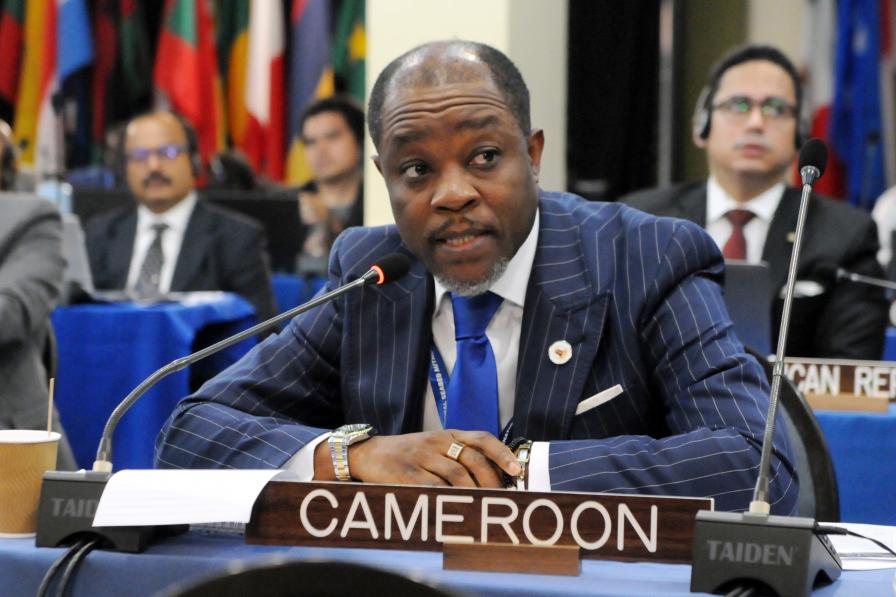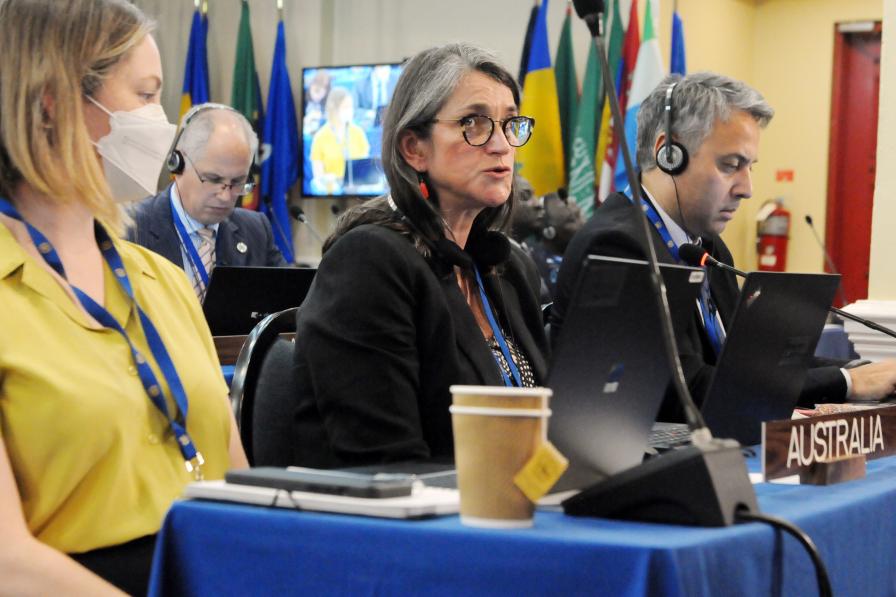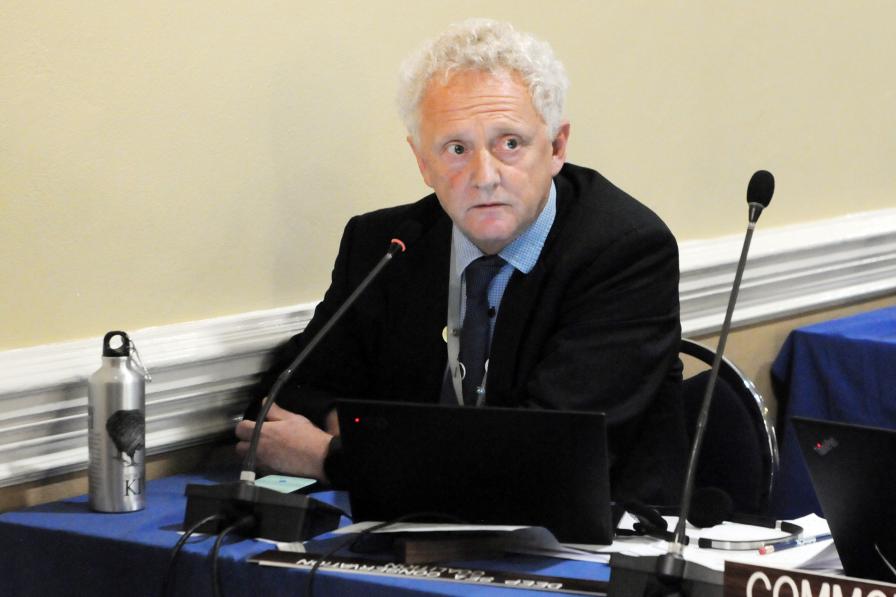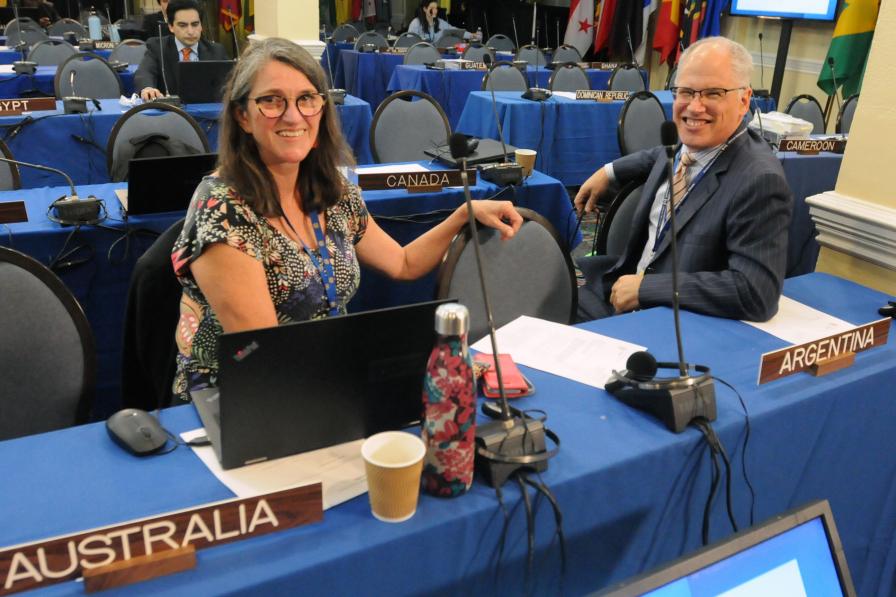The Assembly of the International Seabed Authority (ISA) was able to conclude its 27th session a day early, addressing all remaining items in its agenda. The early finish was mainly due to the very efficient deliberations on Wednesday. The last day, albeit relatively brief, contained interesting discussions that got tense at times.
Following an uneventful election of new members to fill the vacancies in the ISA Council for a four-year period from 2023-2026, delegates resumed discussions on the proposal by Belgium to amend Rule 82 of the rules of procedure of the Assembly to allow representatives of entities having obtained a contract with the Authority as well as the Enterprise to obtain observer status at the ISA. The issue was quickly resolved, at least for the time being, as, noting the lack of consensus, delegates agreed to revert to the matter at a future meeting, recalling in the Acting President’s report of the session that the Assembly discussed the item.
Want to dive deeper? Read today's full Earth Negotiations Bulletin daily report.
Deliberations on the proposal by Chile to discuss the two-year timeline regarding the finalization of the exploitation regulation was more tense. Many delegates delivered strong statements, stressing the many legal uncertainties associated with the two-year timeline and cautioning against compelling Member States to come up with a legal framework that is of utmost importance under time pressure.
A few delegates noted that asking an advisory opinion by the International Tribunal for the Law of the Sea (ITLOS) should be considered. Chile proposed a cautionary pause of 15 years, as a period during which the Authority cannot approve plans for exploitation, so as to enable work to proceed in a serious and responsible manner. Discussions will continue at future sessions, but all participants acknowledged that they need to agree on a way forward to address the controversial two-year timeline sooner rather than later.
The fact that this important discussion was held at the closing stage of the Assembly’s meetings, placed under “other matters,” left some participants disappointed, emphasizing that key substantive issues should take precedence in the discussions. The fact that observers were limited to three-minute interventions on such an important topic, while objectively there was time to spare, further contributed to some participants feeling that the issue could have been dealt with differently.
Additional disagreements arose when discussing the next session of the Assembly. While usually a procedural decision, this time the timing of the Assembly is significant as it directly influences when and how the two-year timeline will be discussed. While consensus could not be reached, delegates decided to further address the issue, including the possibility of a special session of the Assembly, during the Council meeting in November 2022. Despite their disagreements, they all agreed that the coming year and the forthcoming ISA meetings will be of utmost importance for ocean governance.
All ENB photos are free to use with attribution. For photos from ISA-27, please use the following attribution: Photo by IISD/ENB | Diego Noguera.
To receive free coverage of global environmental events delivered to your inbox, subscribe to the ENB Update newsletter.
